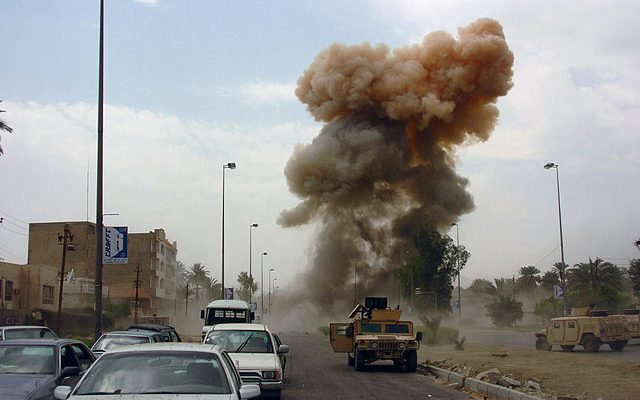It has been almost two years since the U.S. troops were withdrawn from Iraq, but a relentless torrent of attacks has sent the death count to levels last seen in 2008 and keeps the country in the midst of a worsening security crisis. In the latest events, nine car bombs went off in markets and police checkpoints in Baghdad, claiming dozens of lives and virtually erasing security advances made over the past five years.
The attacks occurred a mere three days before Iraqi Prime Minister Nouri al-Maliki was scheduled to arrive in Washington to take part in meetings at the White House. His plan is to request more help from the U.S. in the fight against al-Qaeda affiliates. “We need to increase the depth and width of our cooperation, to be more agile and reflect the seriousness of the situation in Iraq,” Iraq’s ambassador to Washington, Lukman Faily, said in a telephone interview. “In our discussions, we will highlight the urgent need for the approval and quick delivery of military sales.”
There were more than 600 recorded deaths in the month of October alone and 880 in September. The increase in violent activity is credited to attacks by the Islamic State of Iraq and Syria, or ISIS, an outgrowth of al-Qaeda in Iraq. They are using the violence and car bombings in an attempt to undermine the Iraqi state, and they have also initiated jailbreaks to free militants whose capture had been worked on for years by American and Iraqi forces.
When the U.S. military withdrew at the end of 2011, Iraq looked like it could be stabilizing, with monthly death tolls numbering in the dozens instead of the previous hundreds. It lasted through 2012 into 2013, when Syria’s anti-government protest became a civil war along sectarian lines. ISIS is now the leader under which many radical Sunni fighters in Iraq and Syria have united. They are two fronts in a war with the same ambitious goal.

 Blood Moon Prophecy Recap
Blood Moon Prophecy Recap Skating, studies, and strings: Double major balances it all
Skating, studies, and strings: Double major balances it all Students Travel Cheap With Contiki Tours
Students Travel Cheap With Contiki Tours Blind Clarity
Blind Clarity
Leave a Reply